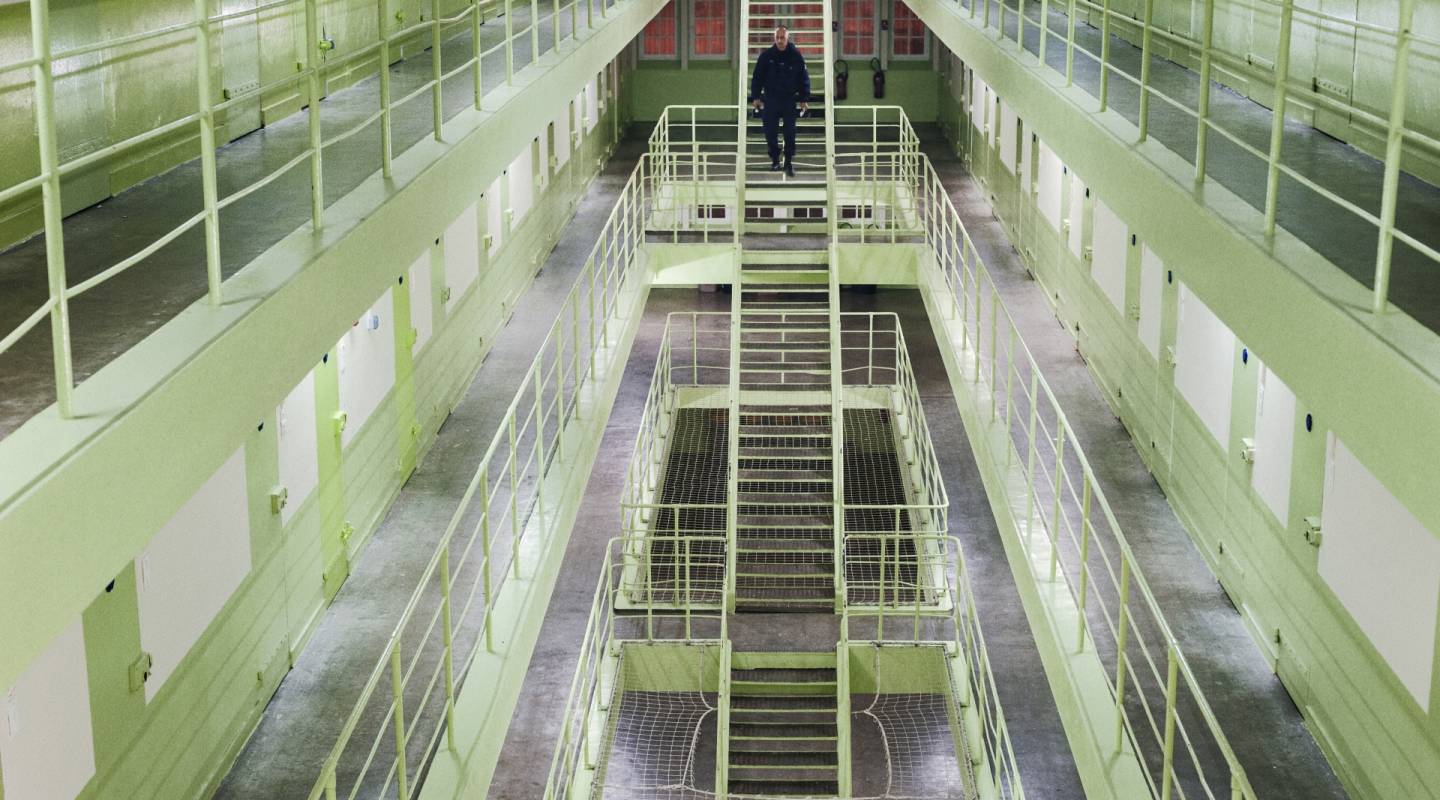
France
Capital city — Paris
Country population
i2018/ INSEEIncarceration rate (per 100,000 inhabit…
Type of government
Human Development Index
Homicide rate (per 100,000 inhabitants)
i2015/ OECDName of authority in charge of the pris…
Total number of prisoners
i01/01/2018/ Prison administrationAverage length of imprisonment (in mont…
Prison density
Total number of prison facilities
i01/01/2018/ Prison adminsitrationAn NPM has been established
Female prisoners
i2018/ Prison administrationIncarcerated minors
i01/2018/ Prison administrationDeath penalty is abolished
yes, abolished since 1981The last executio…
Security, order, and discipline
Security measures
Security functions are fulfilled by
- the penitentiary administration
- the police or gendarmerie
Some prison facilities, units or cells implement high-security measures
Prisoners are classified according to their supposed level of dangerousness
yes
The law allows body searches, whether full or not, if there is a presumption that an offence has been committed or where a person’s behaviour may pose a risk to the security/safety of others or of the prison.
The 24 November 2009 Prison Act allows body searches only as an exceptional measure if other means of control (patting, electronic screening) are not sufficient.
Relatives who enter the prison are searched using the following methods
electronic devices
Professionals who enter the prison are searched using the following methods
electronic devices
Body cavity searches are conducted by a physician
Internal body examinations are banned unless express justification is provided. They must be carried out by a doctor.
Security staff carry
- firearms
- non-lethal weapons
A special intervention unit is in charge of restoring order
Incidents
The prison service keeps record of incidents
Individual acts of protest are recorded
yes
(741 protest movements in 2016)
Collective movements usually protest against prison conditions or how poorly the prisons are run. Protests can take the shape of refusing to return from walks, refusing to eat meals, or protesting in the workshops. Any collective action constitutes an offence and members may have to appear before a committee and face disciplinary action.
Disciplinary regime
Breaches of discipline are clearly defined in writing
Disciplinary arrangements and procedures are subject to a number of procedural safeguards, such as the presence of a lawyer and the participation of an arbitrator from the disciplinary committee who must be independent of the administration.
The decision to apply a disciplinary sanction must be subject to an adversarial debate
yes
Prisoners are allowed to be assisted by a lawyer
Prisoners may appeal against disciplinary sanctions
Disciplinary sanctions can be imposed as a collective punishment
Solitary confinement
Solitary confinement can be used as
- protection
- security
Solitary confinement is decided
- a magistrate’s order
- the prison governor
- the inmate’s request
The duration for placement in solitary confinement is limited
yes
Solitary confinement can be extended
yes
The solitary confinement measure is subject to regular review
yes